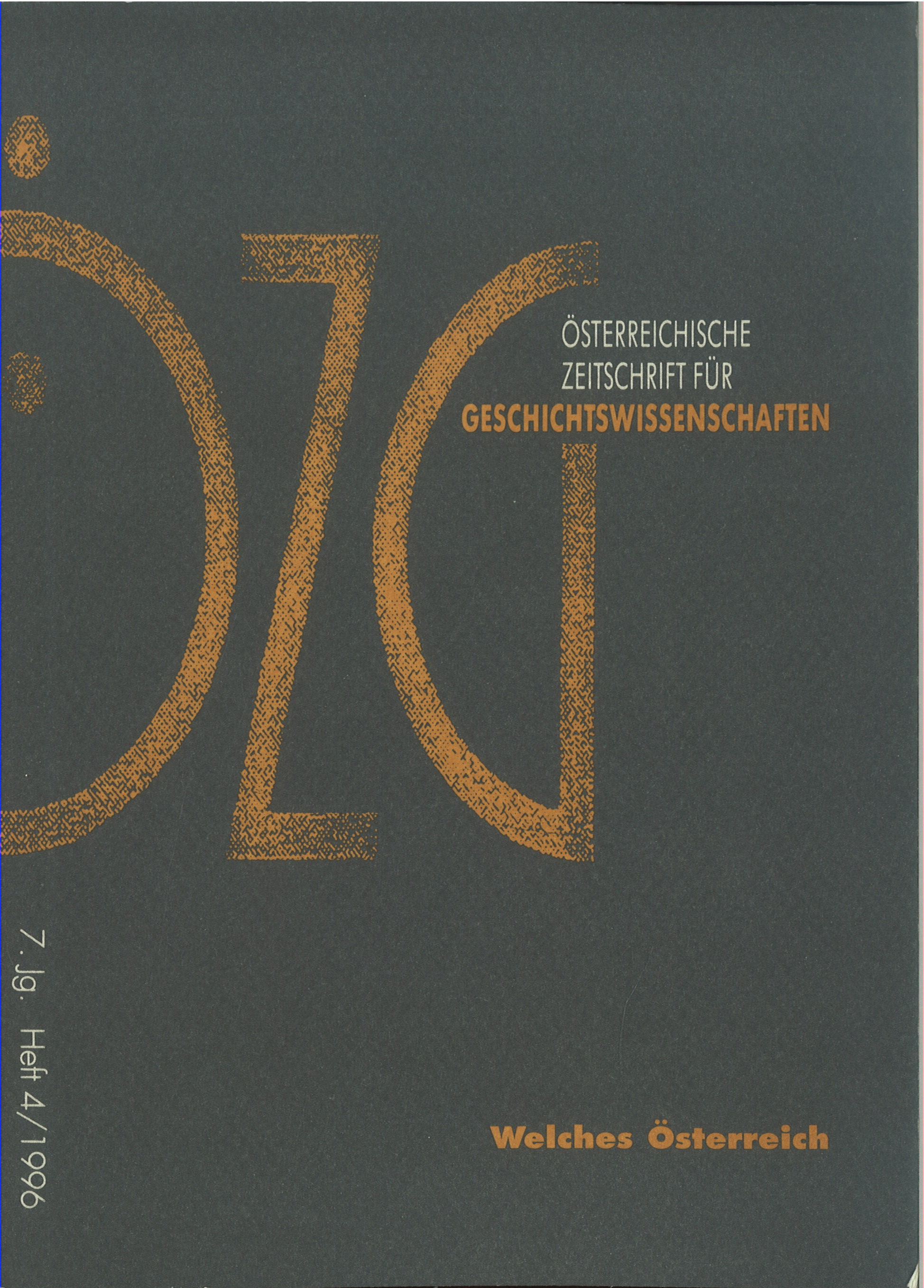Geschlecht und Volkscharakter
Austria engendered
DOI:
https://doi.org/10.25365/oezg-1996-7-4-4Abstract
The author tries to analyse certain key texts in order to elucidate the (concealed) principles that form the basis for the construction of an „Austrian Nation". The semantic analysis shows that the self-image of an historically-rooted Austrian ,,cultural nation" - an image that has primarily been constructed by historians - is closely linked to a process of differentiation from stereotypical representations of the „German nation". This process of differentiation has its origins in the Prussian defeat of Austria in 1866 and the subsequent formation of the German Empire. During that process, the rise of Germany was connected with what were seen as „naturally male" characteristics. The pejorative association of the „Austrian character" with supposedly „female" qualities (a description which was understood to include political passivity and an incapacity for leadership) was then intensified through the use of borrowings made from turn-of-the-century antifeminist theories. Paradoxical as it may seem, most theorists positively identified with this complex of characteristics after 1945. This proved to be politically successful, thanks the fact that it remained tied to the realms fo the imagination.


